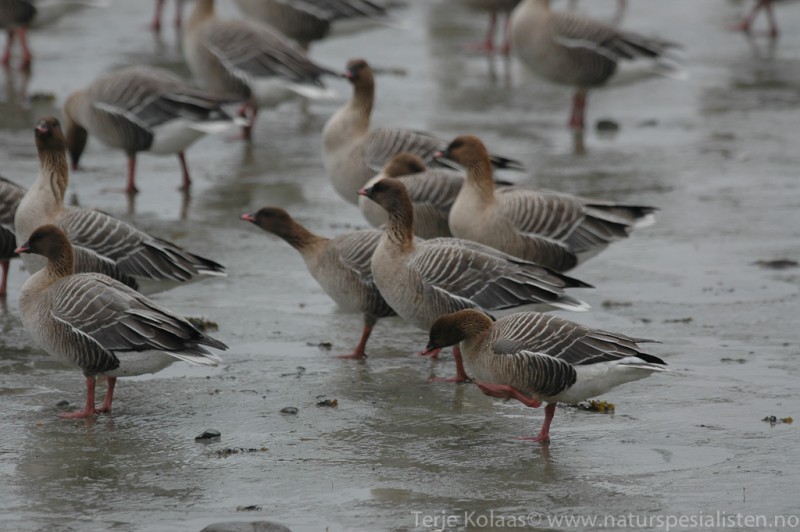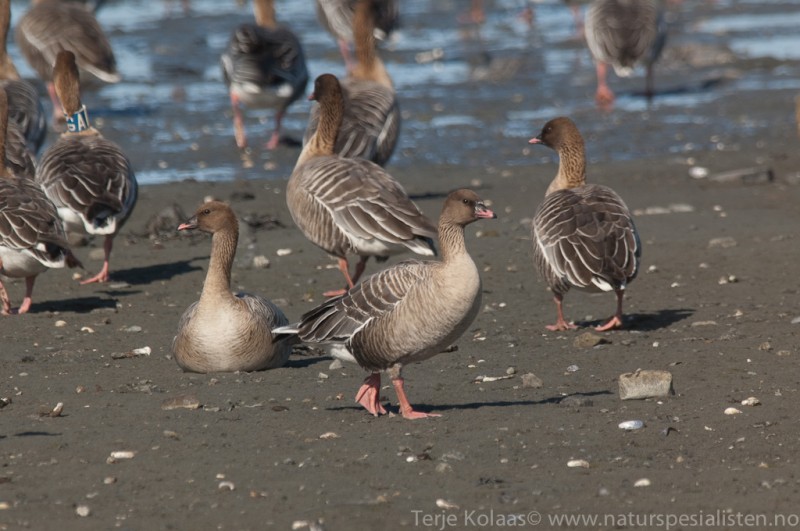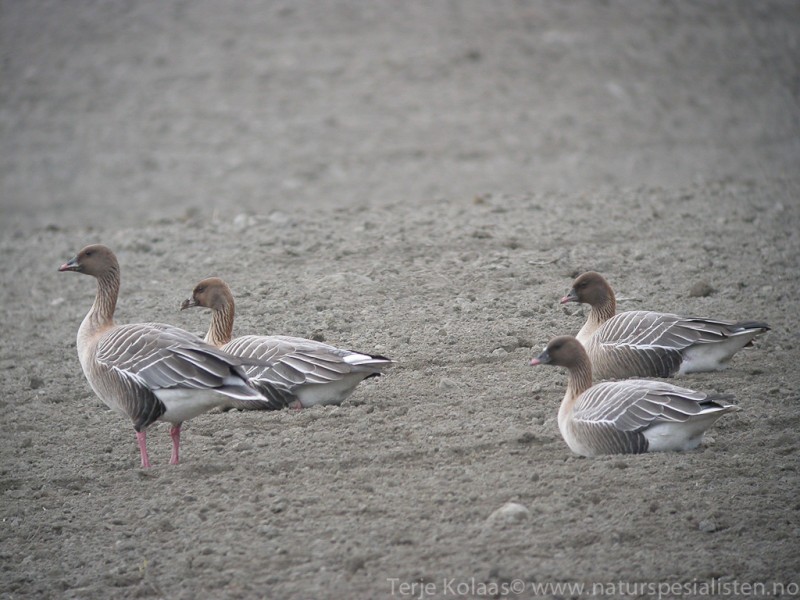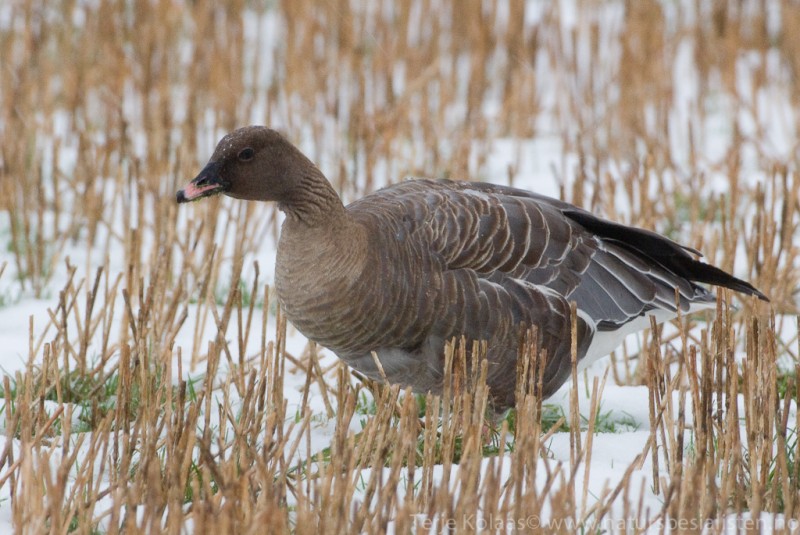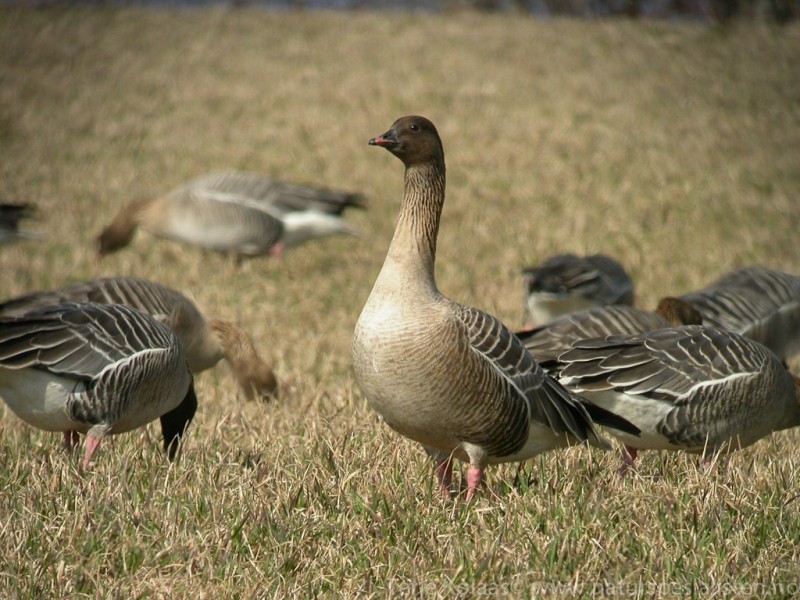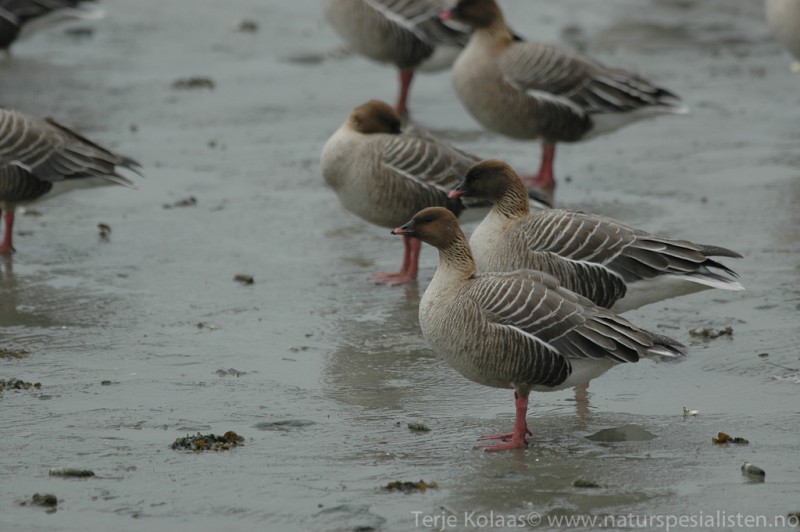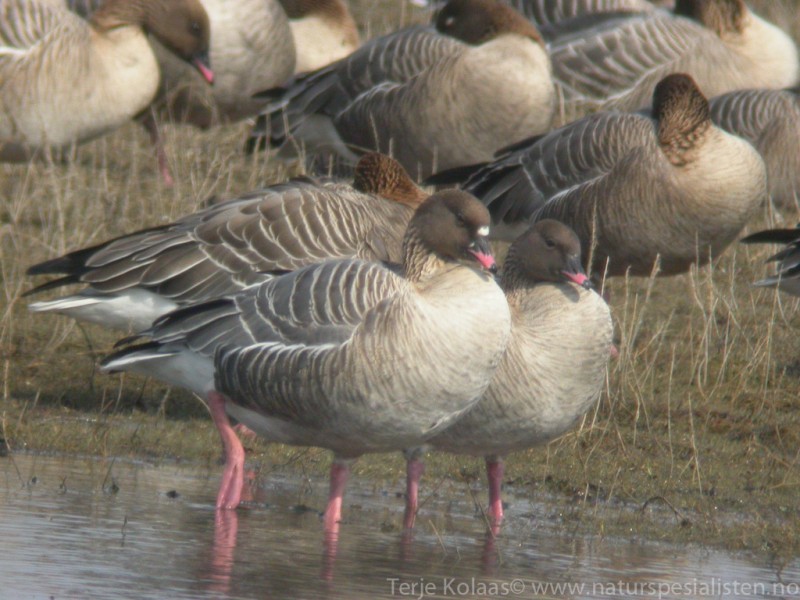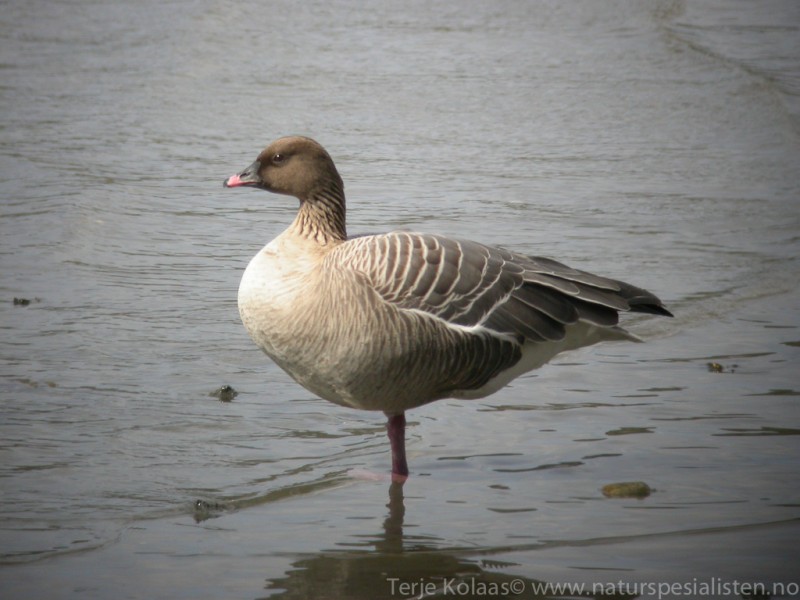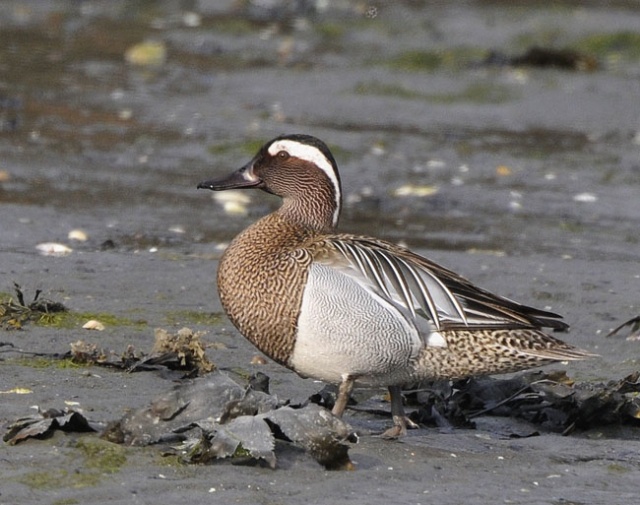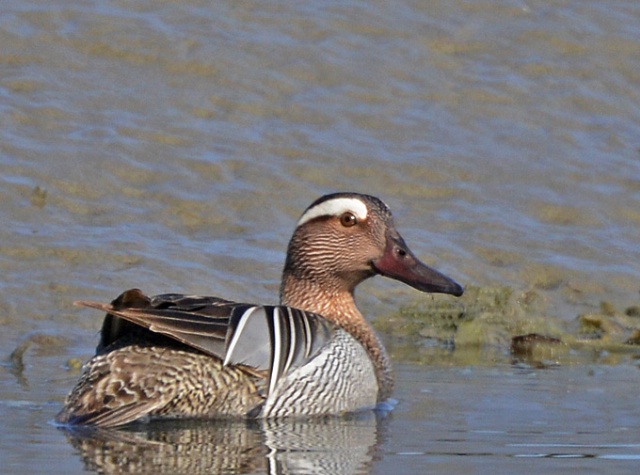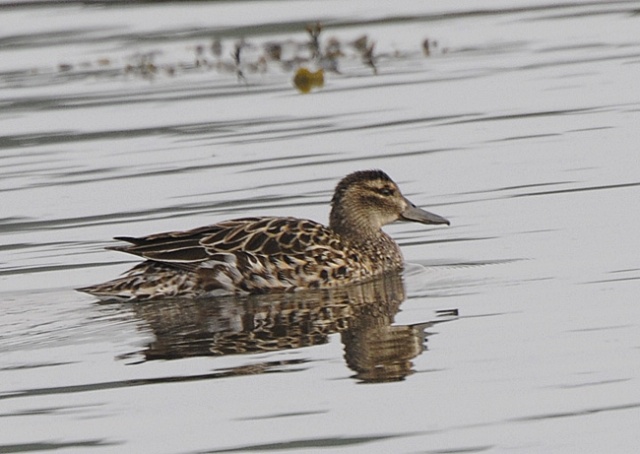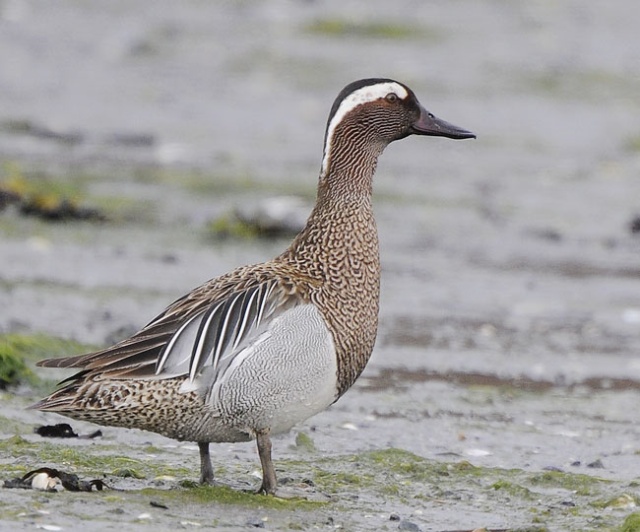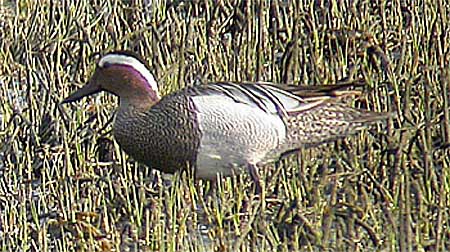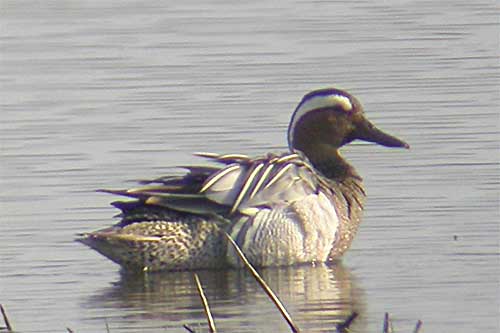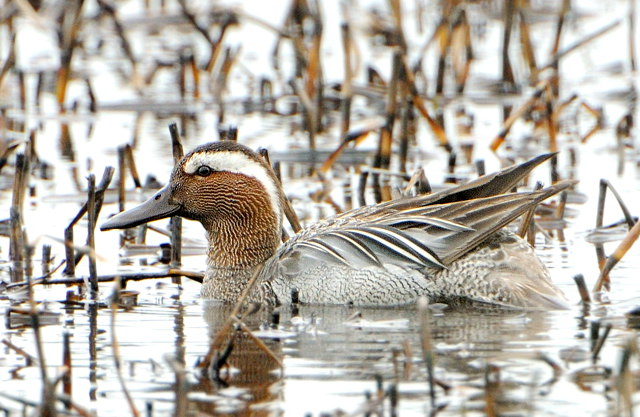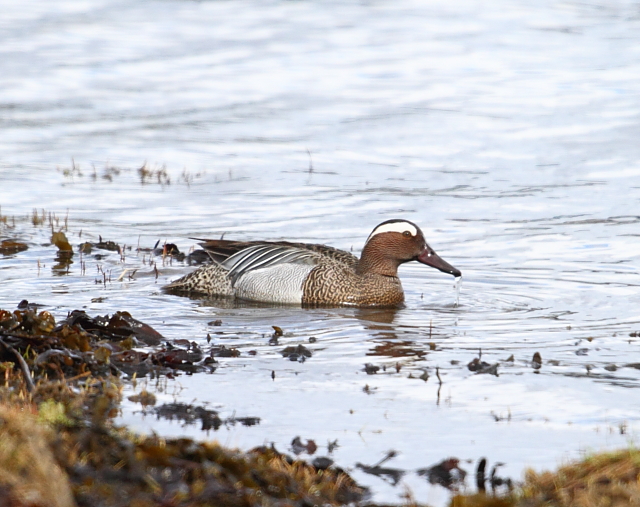Pink-footed Goose (Anser brachyrhynchus)
Garganey (Spatula querquedula)
Pink bill and legs distinguishes it from Bean Goose. This can however be a deceiving character in poor light. Also differs from Bean Goose by pale grey,not brownish, upperparts. The darkest part of the body is the flanks (Bean Goose have equally dark flanks and back).
Sound:Similar to Bean Goose and White-fronted Goose, but more nasal and a little higher pitched than the first, and less musical and laughing than the second. Easily told from Greylag Goose by frequent nasal, high pitched "wink-wink".
Contact call:
Distribution:
Wikipedia: map (se also Xeno-canto below)
Ecology:Birdlife ecology
Links:
Observation.org Latest observations
Image search Flickr NB! May give other species
CCSounds:Recorded by Elias A. Ryberg,http://www.xeno-canto.org ,CC license
Small dabbling duck. Males unmistakable with broad white supercilium and high contrast between the dark mottled breast and the lighter flanks (visible at considerable distance). Female mottled in light brown colours with typical supercilium and contrasting eye-stripe. White spot at base of bill. Throat much lighter than in Teal. Both sexes with dark and fairly long bill. Head gives a square impression due to the flat crown. Speculum in flight shows narrow white edges, lacking Teal's broad front edge. Agile flight, but lacks the twists of Teals.
Sound:Male display sound a characteristic dry rattling, like the sound of running fingernails along the teeth of a comb. A bit similar to Ptarmigan. Also heard at other times than when courting. Female: like female Teal, but typically a bit deeper and shorter calls.
Display-call male:
Distribution:
Wikipedia: map (se also Xeno-canto below)
Ecology:Birdlife ecology
Links:
Observation.org Latest observations
Image search Flickr NB! May give other species
CC
 English
English Albanian
Albanian
 Armenian
Armenian
 Bulgarian
Bulgarian
 Catalan
Catalan
 Croatian
Croatian
 Czech
Czech
 Danish
Danish
 Dutch
Dutch
 Finnish
Finnish
 French
French
 Georgian
Georgian
 German
German
 Greek
Greek
 Hungarian
Hungarian
 Italian
Italian
 Latvian
Latvian
 Lithuanian
Lithuanian
 Macedonian
Macedonian
 Norwegian
Norwegian
 Polish
Polish
 Portuguese
Portuguese
 Romanian
Romanian
 Russian
Russian
 Sami : Lule sami
Sami : Lule sami
 Sami : North sami
Sami : North sami
 Sami : South sami
Sami : South sami
 Scientific names
Scientific names
 Serbian
Serbian
 Spanish
Spanish
 Swedish
Swedish
 Ukrainian
Ukrainian

